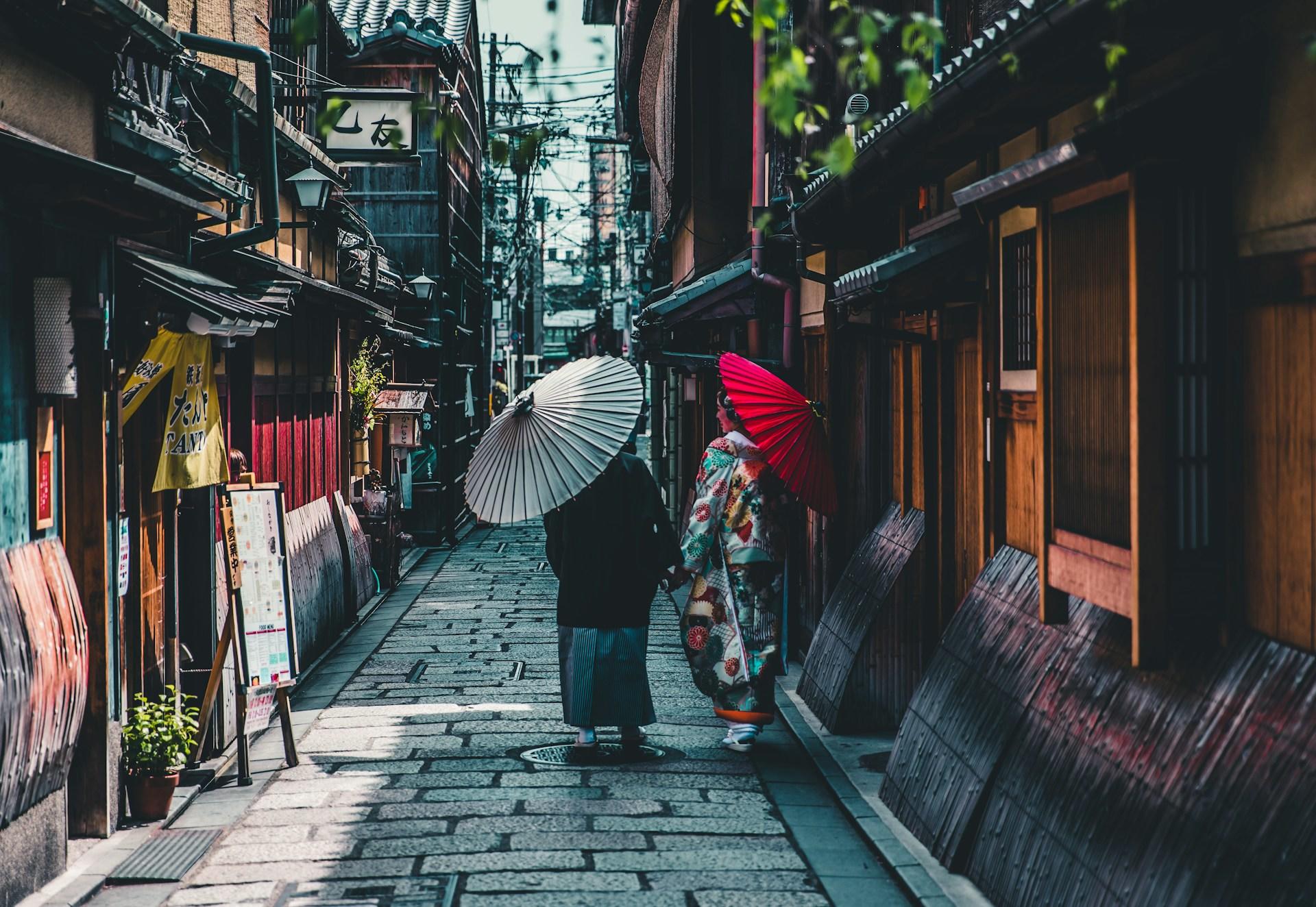
Introduction
No matter which language you are learning, there are always several key concepts or pieces of vocabulary that every speaker needs to have in their arsenal in order to effectively communicate with other speakers.
The first thing most people learn is how to say hello, and goodbye, how to introduce themselves and how to say please, sorry and thank you.
There is another vital piece of vocabulary that is perhaps not thought about as much by beginners, but is equally essential to navigating conversations in everyday life. This vocabulary is known to us in English as: ‘The days of the week’... In Japanese, these days are called ‘youbi’/(ようび).
In this article, we’ll be exploring these ‘youbi’ and familiarising you with each of them and giving you some background to each of the names, so that by the end, you’ll be able to recall them all whenever you need them.
If you’re ready to develop your Japanese skills, let’s not delay any longer.
Minasan, ganbatte!
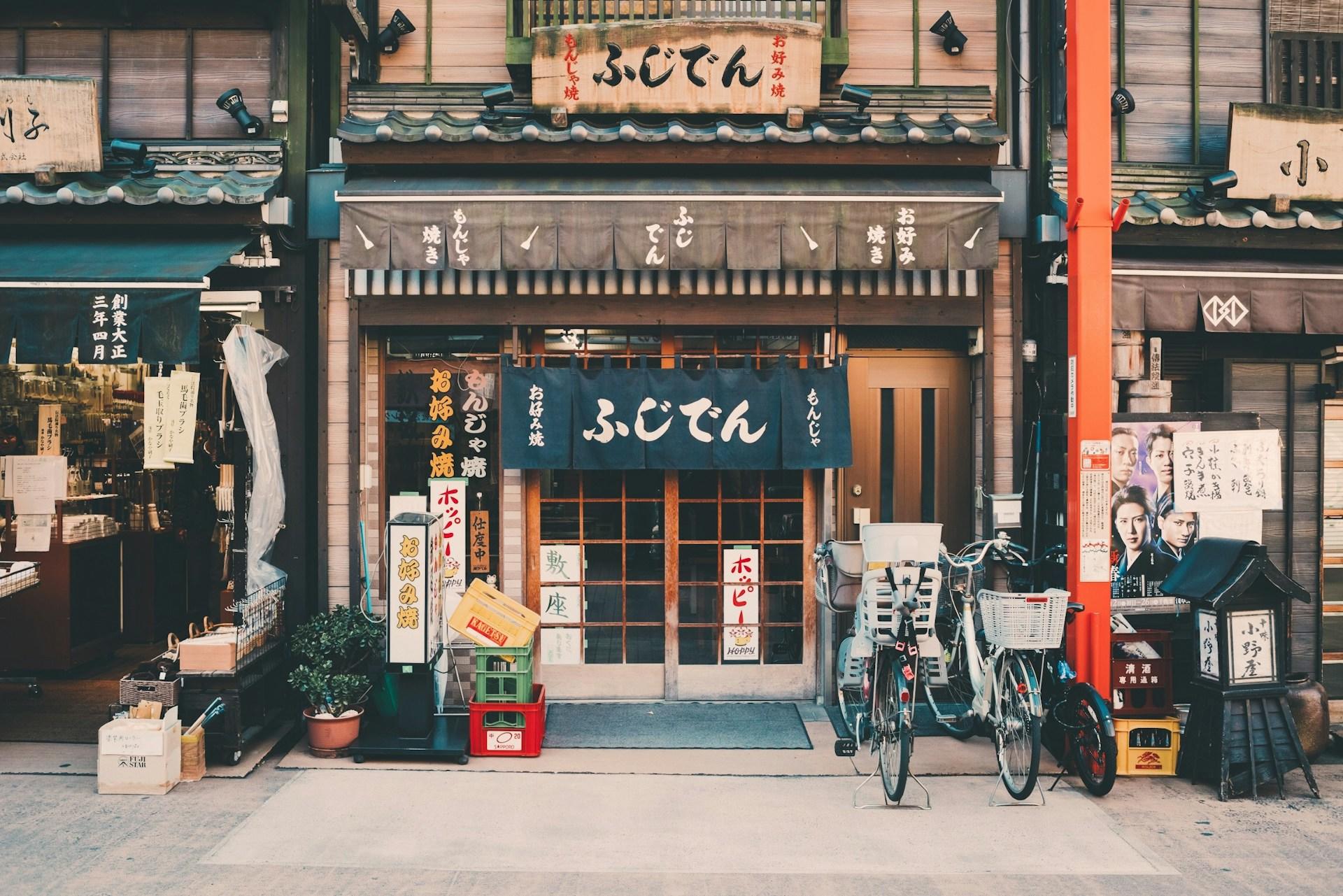
How did the days of the week get their names?
The days of the week in Japanese are actually quite easy to learn for English speakers, and this is because Japan’s adoption of the Gregorian calendar was a fairly recent one in the grand scheme of things.
The Meiji government replaced the old lunar calendar with its modern counterpart in 1872 and naturally, new names for the weekdays came along with it.
Just like in English, the days of the week in Japanese are named after the celestial bodies, or as most of us know them, the sun, the moon and the planets; as we go through the days of the week, you should be able to notice the almost identical naming convention, which will help us with remembering the names when we need them later.
Another interesting fact to note is that unlike in the UK, Japan, while sharing a seven-day week structure with us, starts its weeks on the equivalent of Sunday instead of Monday. The reason is mainly semantic, since they think that the ‘Sun’ day should come before the ‘Moon’ day.
It’s pretty difficult to criticise such reasoning, even if ultimately it doesn’t matter.
The days of the week in Japanese hiragana
One last thing before we start, you’re more likely to see the days of the week in Japanese Kanji, which is the writing system used to display more common everyday concepts and words.
These Kanji are faster and more context specific which make them great for quick communication between native speakers, but for learners, they can be a bit confusing and hard to remember.
For this reason, we’re going to provide both the Kanji and the phonetic Hiragana versions of the days of the week, make sure you don’t get them mixed up!
Sunday
Just like in English, Sunday in Japanese is a reference to the sun, the largest and perhaps most significant celestial body. Sunday marks the start of the week for Japan and in the Japanese religion of Shintoism, the Goddess/Kami Amaterasu is worshipped on Sundays.
In Japanese, this day is called ‘Nichiyōbi’.
Hiragana: にちようび
Kanji: 日曜日
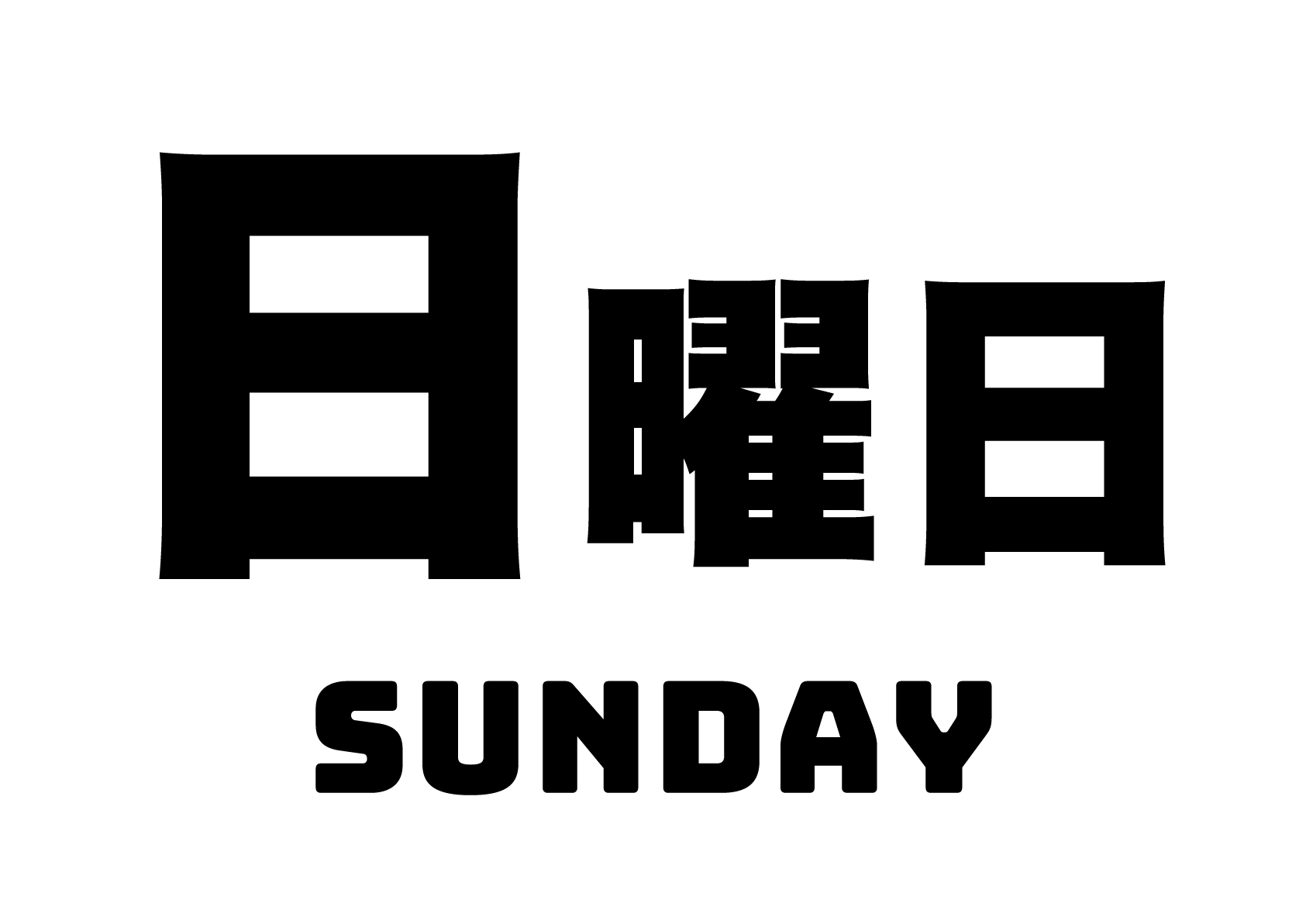
The word itself is made of two constituent parts. We have yōbi, meaning day or more precisely ‘day of the week’ in this context.
We also have nichi, which in this context means ‘the sun’, but somewhat confusingly, nichi can also mean day, however this is for days of the month as opposed to weekdays and is used as a suffix rather than a prefix.
Monday
Monday is the day of the moon, again, just like in English. The Japanese are very familiar with the attitude of ‘everyone hates mondays’, and they even have something called the ‘happy monday system’, which is a societal effort to put as many national holidays on Monday as possible.
If you’re not a Monday person, maybe Japan is the country for you!
In Japanese, Monday is ‘Getsuyōbi’.
Hiragana: げつようび
Kanji: 月曜日
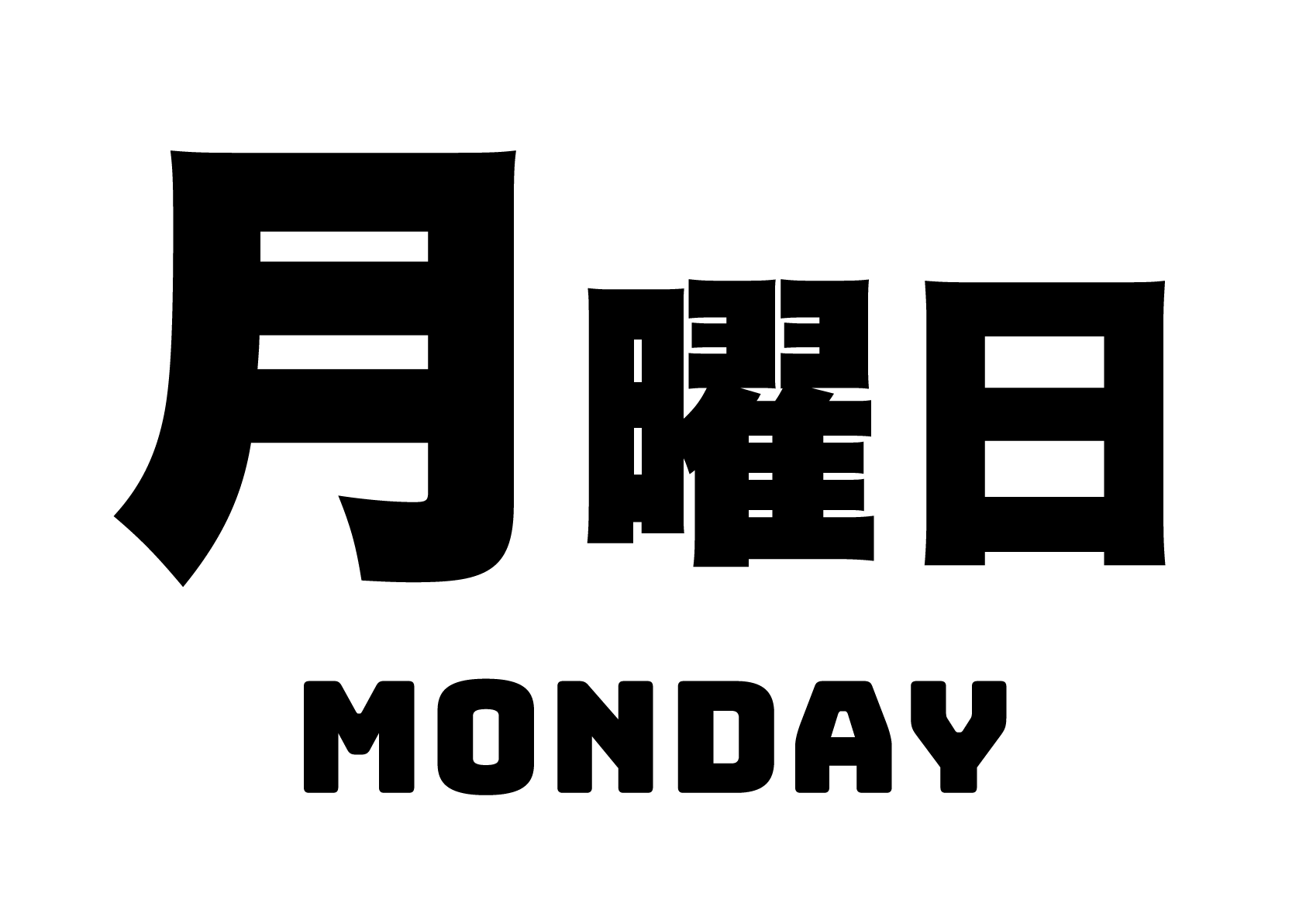
As with Sunday or ‘Nichiyōbi’, the suffix yōbi means day and the prefix Getsu means ‘moon’. Getsu can also refer to a month as a unit of time, which makes a lot of sense considering that the Japanese used to derive their calendar from the phases of the moon.
Tuesday
In English and Latin derived languages, the word Tuesday is named after the God of War and corresponds to the celestial body Mars. In different cultures, this god goes by many names. ‘Mars’ in Latin, ‘Ares’ in Greek, ‘Tyr’ or ‘Tiw’ in Germanic, etc… In Japan, the day is also named after the planet Mars.
Tuesday in Japanese is ‘Kayōbi’.
Hiragana: かようび
Kanji: 火曜
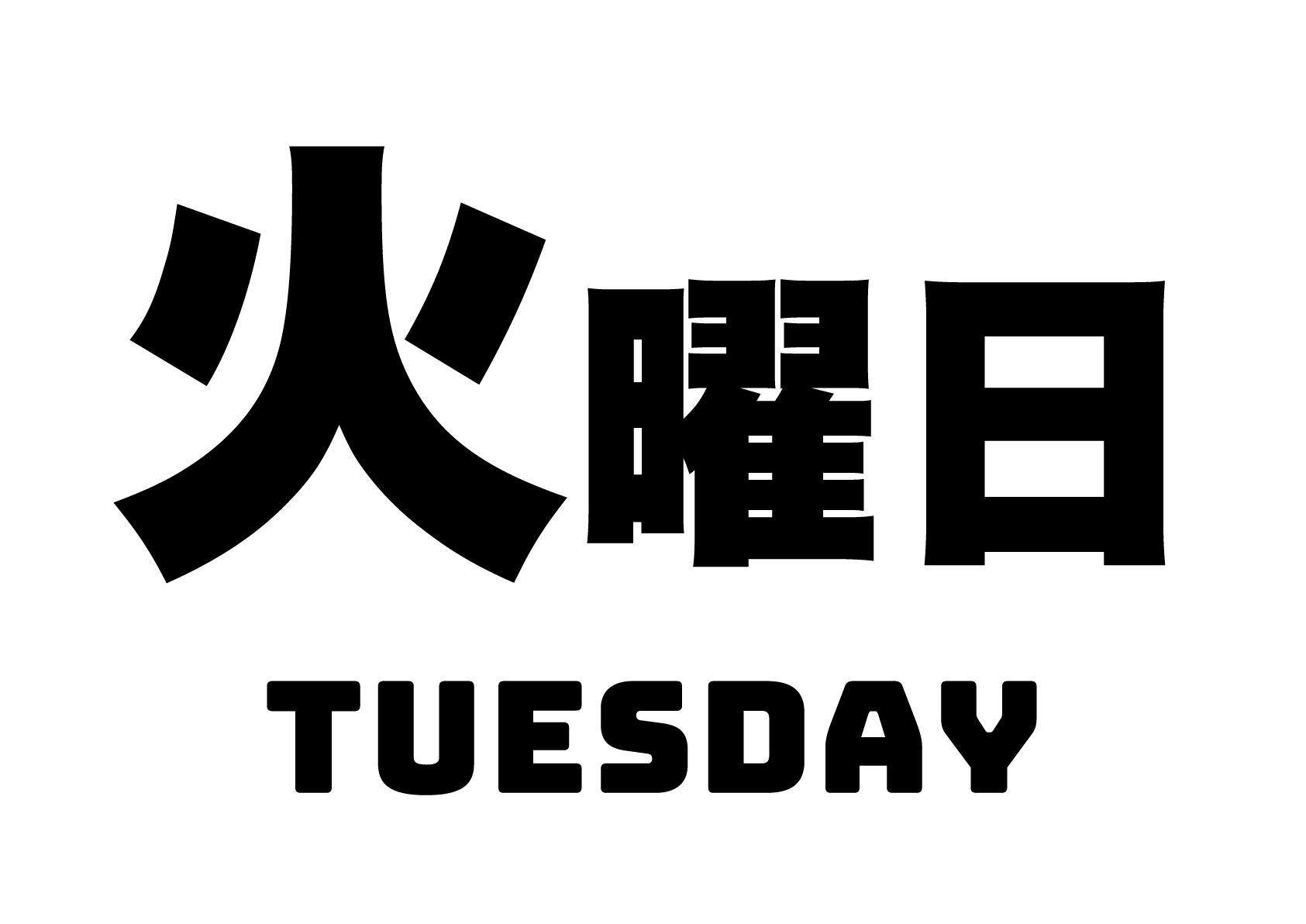
Unlike their English equivalent, Mars isn’t associated with a god of war, but instead with the fiery red appearance of the planet itself. As such, the meaning behind the name is fire day, with yōbi of course meaning day again, and ka literally meaning fire.
As a Japanese learner, be careful with ‘ka’, as it has a lot of uses in the language that have little to do with its meaning as a Kanji symbol, such as being used as a suffix to indicate a question, the similar ‘kaa-san’ which means ‘mother’, (only as an address), and words like ‘something’, ‘someone’, or ‘somewhere’.
Wednesday
In English and Latin, Wednesday references Mercury. Mercury is the god of Commerce, translation and was known as the messenger of the gods.
The Norse equivalent from which we get the name Wednesday is Woden, who is often equated to Mercury in Norse mythology. Woden is also known in other dialects as Odin or Wotan.
Wednesday in Japanese is 'Suīyōbi'.
Hiragana: すいようび
Kanji: 水曜日
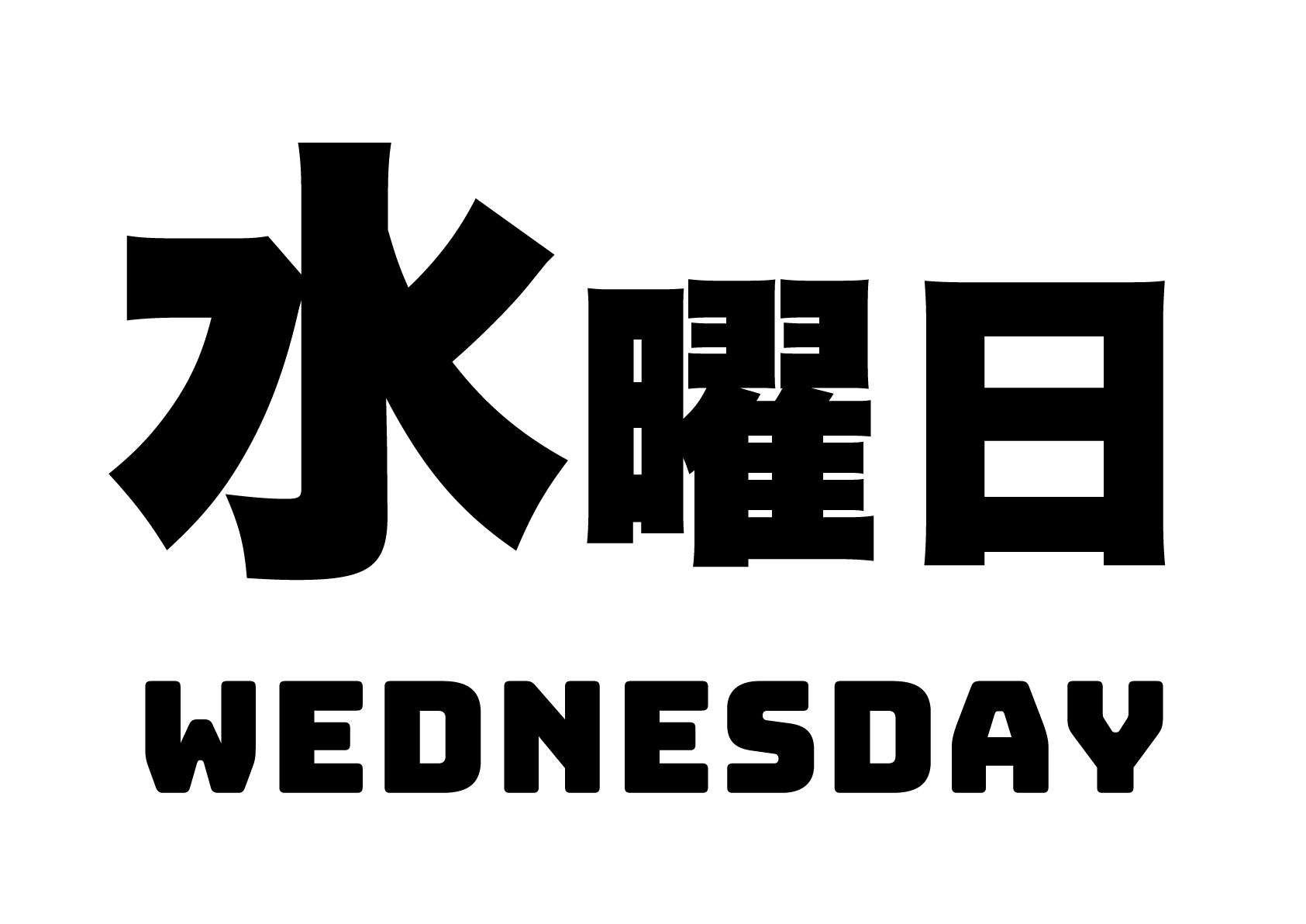
The equivalence between the name of Wednesday in Japanese is actually quite clear, since Mercury is for one, a liquid and the God it’s named after is connoted with change and commutability, just like the historical alchemical beliefs about mercury as an element.
In Japanese, sui means water, but also liquid and its physical characteristics, like flowing and formlessness.
Thursday
Thursday follows the naming tradition of the other weekdays, being named after Thor, the god of thunder. Latin languages name this weekday after the Roman god of thunder, Jupiter.
If Jupiter is unfamiliar to you, it's probably because the prevailing media representation of this god is his Greek equivalent Zeus, but the two are essentially one and the same.
Thursday in Japanese is ‘Mokuyōbi’.
Hiragana: もくようび
Kanji: 木曜日

For once, there isn’t much relation between Thursday in Japanese and its English counterpart, or at least not an obvious one; nevertheless, both names reference Jupiter, which is the ‘wood star’ in Japan. Mokuyobi essentially means ‘Wood day’.
Moku can mean both wood and tree in Japanese. An easy way for learners to remember this word is to think that Suiyōbi, or ‘Water Day’, causes the tree from Mokuyōbi, or ‘Tree Day’ to grow.
The day is associated with growth, fortune and prosperity, which are the symbolic meanings behind trees in Japan.
Friday
Coming right after ‘Thor’s day’, our English Friday comes from Thor’s wife Frigg, the Goddess of marriage and love. This goes hand in hand with the Latin equivalent Venus, or in Greek, Aphrodite, who is also coincidentally the wife of Jupiter/Zeus respectively.
Friday in Japanese is ‘Kinyōbi’.
Hiragana: きんようび
Kanji: 金曜日

While in the West, Venus represents love, marriage and fertility, the Planet has a different connotation in Japan. Kinyōbi translates to ‘gold day’.
In Japan, the planet Venus is known as the ‘metal star’ and the word Kin means gold and should make the word easy to remember for learners as we can relate it to the societal love of Fridays, hence its veneration as the ‘golden day’.
Saturday
Lastly, we have Saturday. The name is somewhat obviously derived from the planet Saturn, who in mythology was the Roman god of time, but also of agriculture and prosperity.
If you’re caught up on your Greek mythology, you might also know Saturn as Cronus or Kronos, although he wasn’t traditionally worshipped in the main pantheon of Greek gods since he was a Titan, their progenitors and traditional enemies.
In Japanese, Saturday is called ‘Doyōbi’.
Hiragana: どようび
Kanji: 土曜日

In Japanese, the significance of Saturn is different to its western counterpart, but very significant nonetheless. Doyōbi translates to ‘earth day’, but in the context of the element earth, rather than the planet earth. Do translates to ‘earth’ or ‘soil’.
You can remember this by thinking of the sun setting in/behind the earth before rising again on Nichiyōbi (Sunday).
Here's a summary of the days of the week in Japanese, including Hiragana and Kanji.
| English | Pronunciation | Hiragana | Kanji |
|---|---|---|---|
| Monday | Getsuyōbi | げつようび | 月曜日 |
| Tuesday | Kayōbi | かようび | 火曜日 |
| Wednesday | Suiyōbi | すいようび | 水曜日 |
| Thursday | Mokuyōbi | もくようび | 木曜日 |
| Friday | Kinyōbi | きんようび | 金曜日 |
| Saturday | Doyōbi | どようび | 土曜日 |
| Sunday | Nichiyōbi | にちようび | 日曜日 |
Afterword
Thank you so much for reading our article about learning the days of the week in Japanese! We hope you managed to learn not only the days of the week but also some useful associations you can make to help you remember them.
If you want to learn more about Japanese fundamentals, make sure to check out our other Japanese articles right here on the Superprof blog.
If you want to learn even faster, make sure you check out Superprof’s premium service, which aims to help you find the ideal tutor in your area for your Japanese learning needs.
We hope to see you again soon - Ja ne!

